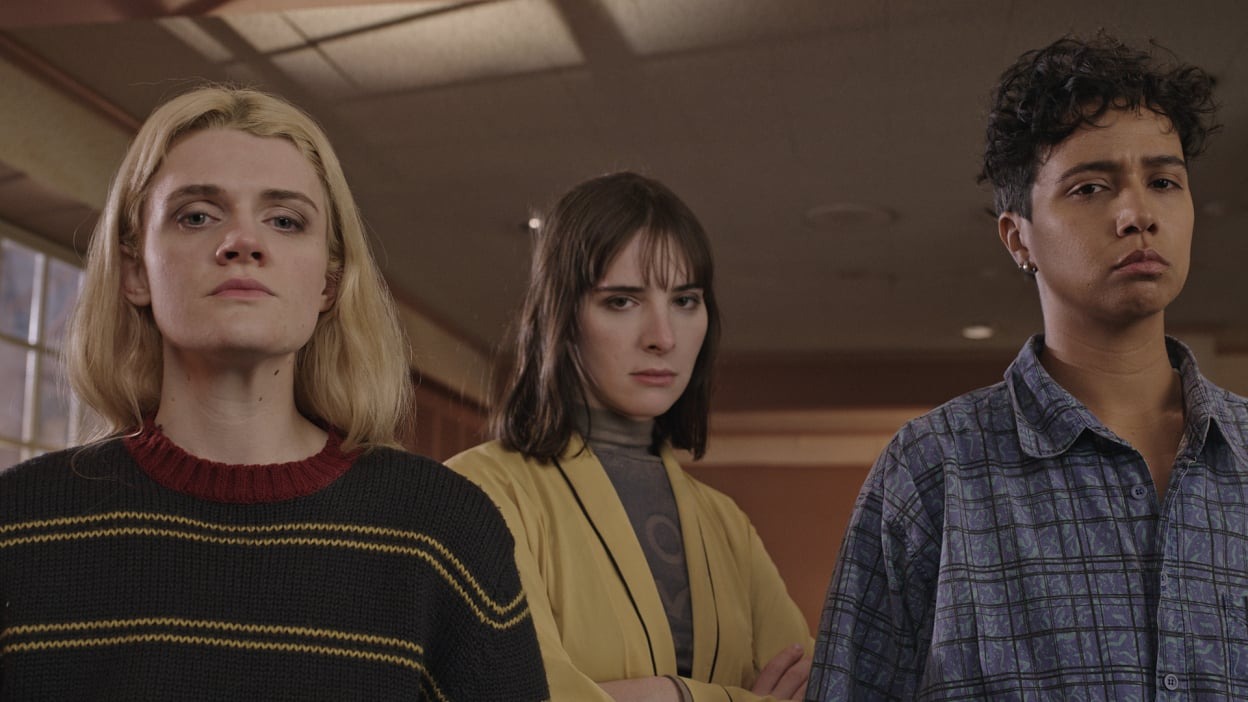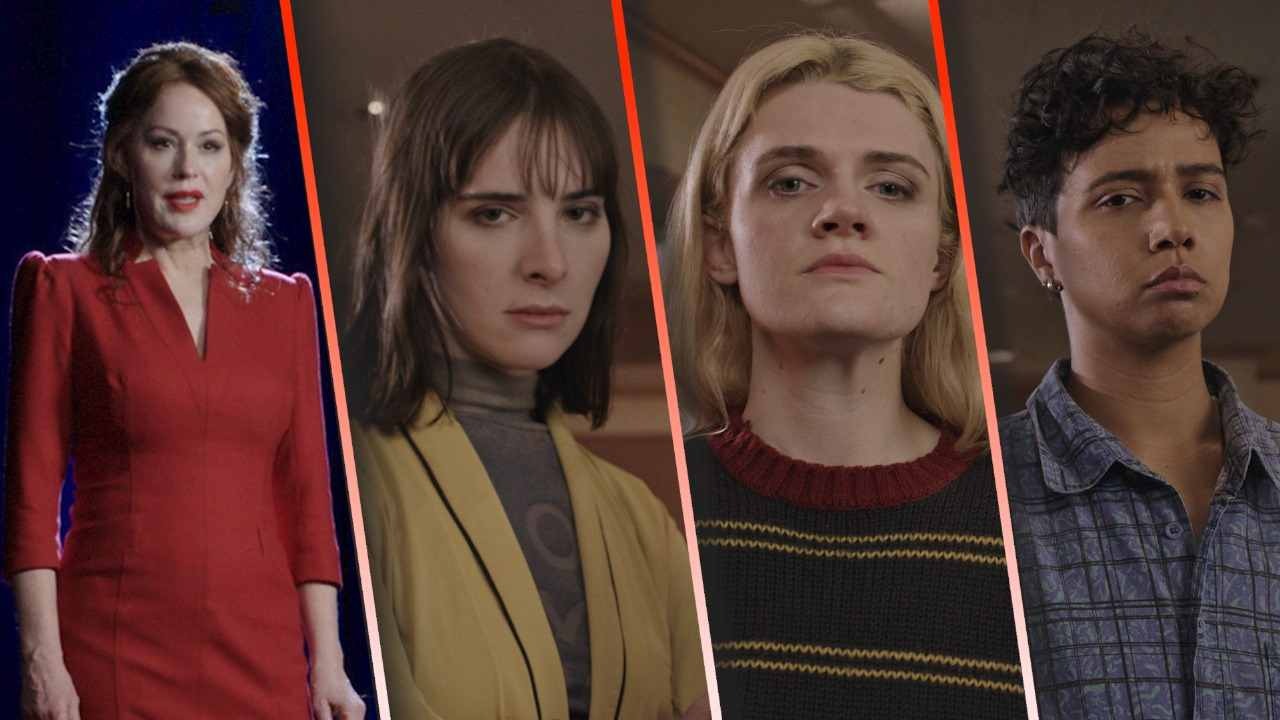Many horror films fail to provide neat conclusions, but when evaluating clarity versus confusion, Stewart Thorndike’s Bad Things leans distinctly toward the latter.
What truly comes to play in this hotel-centered horror film, and what does the psychologically twisted conclusion signify? We’ve made an effort to clarify its themes below.

What is Bad Things about?
The foundation of the story is relatively straightforward. Bad Things features four friends—Ruthie (Gayle Rankin), her partner Cal (Hari Nef), Maddie (Rad Pereira), and Fran (Annabelle Dexter-Jones)—who visit Ruthie’s recently inherited hotel for the weekend.
The Comley Hotel, once operational, now stands abandoned, and Ruthie is conflicted about whether to sell it, as her mysteriously absent mother (played by the iconic Molly Ringwald) seems to want, or to pursue it as a business venture, which Cal advocates.
Adding to the tension are Ruthie’s haunting childhood memories tied to the hotel and its reputation for being haunted by the spirits of those who have died within its walls.
As the weekend progresses, tensions escalate among the group. Ruthie’s demeanor suggests she is not herself, while Fran’s presence appears unwelcome to all but Maddie.
The strain on Ruthie and Cal’s relationship becomes evident. Before long, characters experience visions reminiscent of Stephen King’s The Shining as they roam the halls of the Overlook Comley, with an ever-present threat of violence looming.
What Occurs at the End of Bad Things?
As anticipated, that looming threat transforms into reality. The crucial question remains: how much of it is genuinely occurring, and how much exists solely in the characters’ imaginations?
To clarify the sequence of events, things take a dark turn when Brian (Jared Abrahamson), a part-time hotel worker, is hunted down within the hotel and murdered by a hooded assailant wielding a chainsaw and wearing Ruthie’s sleep mask.
Subsequently, the same figure injures Maddie by trapping her arm in a door. Ruthie’s friends blame her for the incident, but she maintains her innocence.
Fran meets her end next. While trying to convince Ruthie to leave the hotel with her, she is struck on the head by Cal and pushed through a window by Ruthie. Although Fran survives the fall, she stumbles backward and falls into the frozen swimming pool, leading to her demise.
Maddie ventures into Suite 324, where she discovers Ruthie’s mother, apparently beaten to death with a fire extinguisher. As Maddie and Cal attempt to flee the hotel upon realizing the horrifying truth, Ruthie pursues them through the snow with the chainsaw, seemingly ending their lives.
At first glance, one could interpret Bad Things as a tale of a woman spiraling into madness and embarking on a murderous spree akin to Jack Torrance’s. Yet, is the story truly as straightforward as it seems?
What is the Truth Behind Ruthie’s Mother?
Ruthie’s relationship with her mother, Ms. Auerbach, appears to hold the key to both the story and Ruthie’s mental state.
Writer/director Thorndike emphasizes the importance of this dynamic, referring to Bad Things as “an unrequited ghost love story between a mother and a daughter” in a statement to Mashable.
“I aimed to dismantle societal expectations of what a mother and daughter should be— not just subtle, nurturing figures, but rather complex, active, and even frightening characters,” she states. “It’s a celebration of this primal bond and the blurred lines within it, especially when unrequited.”
From the film’s outset, the absence of Ruthie’s mother feels almost tangible. Ruthie exchanges sporadic texts with her mother, and when Brad seeks Ms. Auerbach at the Comley Hotel early on, he notes her car is parked outside and expresses his desire to check her room. However, Ruthie insists her mother is not present, explaining that “her car doesn’t work.”
The strained relationship between Ruthie and her mother is evident, bordering on abusive. Early in the film, we hear a tale about how Ms. Auerbach inadvertently left Ruthie behind in the hotel as a child, leaving her alone for several days and causing frostbite. Cal suggests that Ruthie’s mother is pressuring her to sell the hotel.
It is only in the film’s final moments that we uncover the truth about Ms. Auerbach: she has been dead in her hotel suite all along. The implication is that Ruthie killed her mother out of resentment and revenge. It becomes apparent that Ruthie has been texting herself using her mother’s phone throughout the film.
Did Ruthie Truly Goes on a Killing Spree?
While it appears that Ruthie likely did murder her mother, the other killings in the film present a more ambiguous picture. In the climactic scenes, when Ruthie kills Cal and Maddie with the chainsaw, a shot reveals bystanders calmly walking past, as if nothing unusual is occurring.

Could it be that this entire sequence exists solely in Ruthie’s mind, indicating that she has completely severed her grip on reality? If so, what else that transpires in the hotel might be mere figments of her imagination?
Thorndike skillfully blends delusion with reality, making it challenging to determine the truth. I would argue that Ruthie’s murder of her mother is a genuine event, serving as a catalyst for all subsequent chaos.
Additionally, it seems plausible that Ruthie killed Brad, given that three different characters witness his body. With his connection to Ms. Auerbach and his growing suspicion of foul play, a motive exists.
As for the remaining deaths? The certainty diminishes. I suspect Fran never truly returns to the hotel; she is abandoned at the train station partway through the film, making her sudden reappearance likely a product of Ruthie’s imagination.
Lastly, I doubt Ruthie actually kills her two remaining friends in the film’s conclusion. This, too, may reside within her mind—a final fantasy of destruction. The presence of those oblivious passersby serves as evidence of this perspective.



